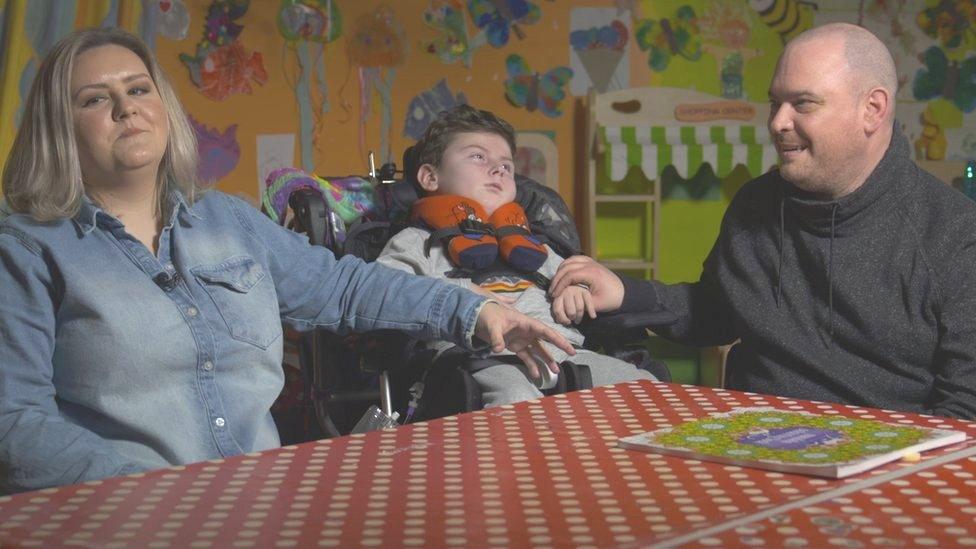Families 'let down' by children's hospices funding
- Published
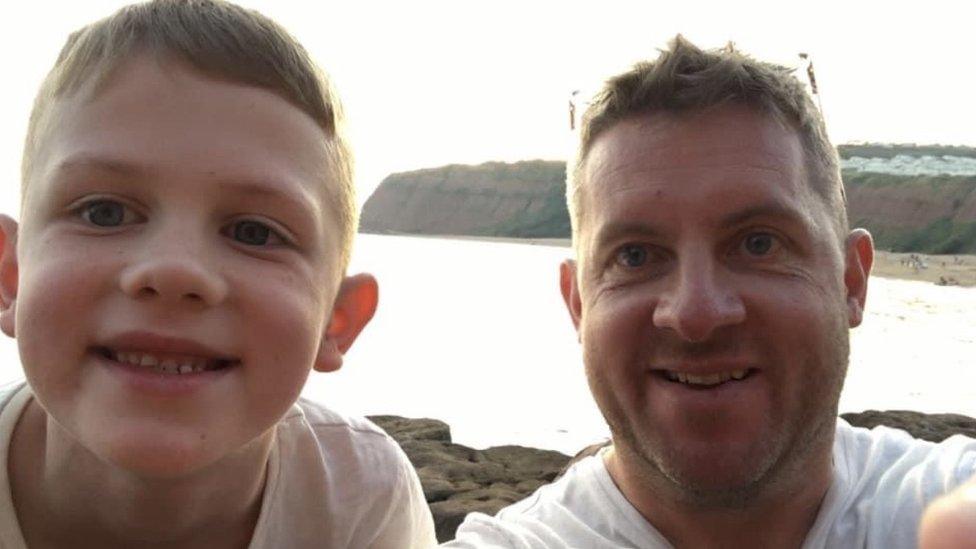
James Meacham said respite care was "invaluable" for letting him enjoy precious moments with son Thomas
Families with children who have life-limiting conditions "urgently need more access to respite care", a report has found.
More than 130 families across Wales' seven health boards who use children's hospices contributed to the critical Family Voices report.
They want better access and more money for Wales' two hospices.
The Welsh Government said it was working with hospices "to understand their future funding requirements".
Tŷ Hafan, near Cardiff, and Tŷ Gobaith, near Conwy, provide specialist one-to-one care and outreach services to children and their families, including end-of-life and crisis care, plus respite help to full-time carers.
The report found paediatric palliative care "needs to be improved", with almost three-quarters of families saying they faced barriers when it came to accessing support.
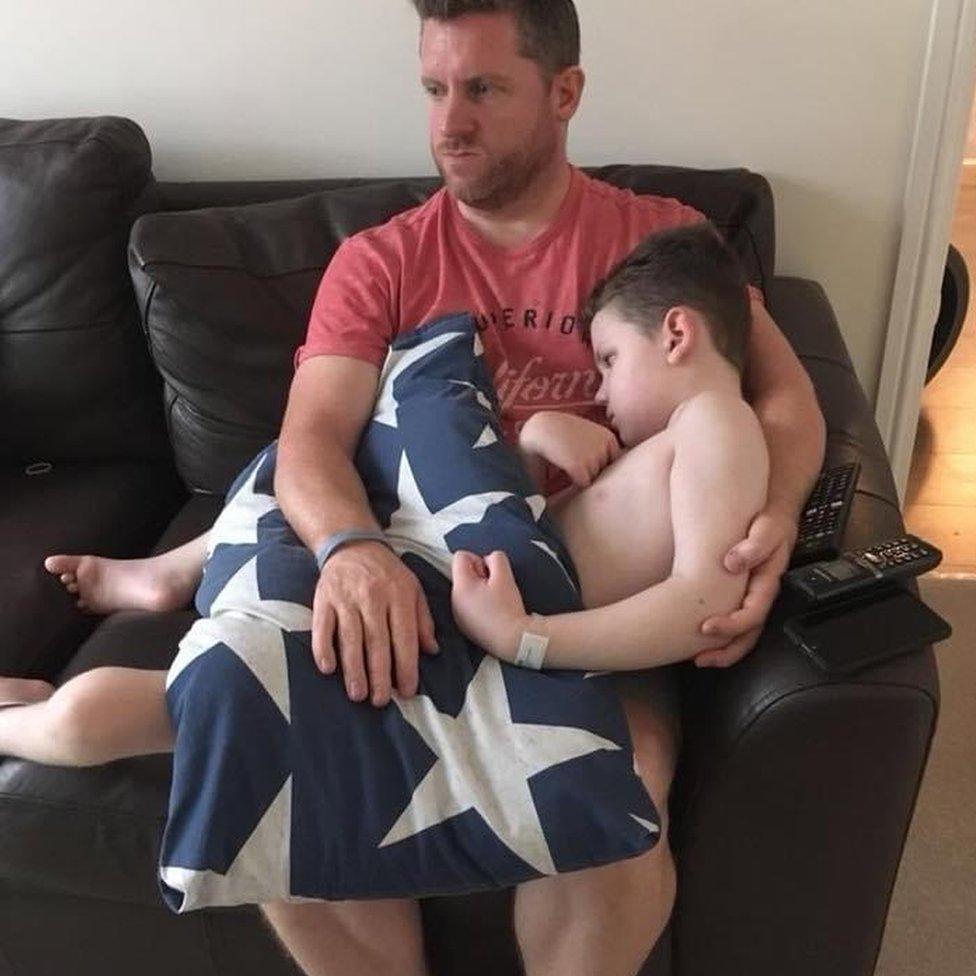
James Meacham gave up work when eight-year-old son Thomas was diagnosed with a rare brain disorder
One parent said families like his were being "let down" by a lack of funding, as children's hospices get less than 10% of funding, on average, from the Welsh Government, lower than other UK countries.
More than three-quarters of those who took part said the two centres were the only places they could get complete respite care.
More than half of the respondents also reported serious financial challenges, with an income of less than £25,000, while more than a fifth have less than £15,000 a year to live on.
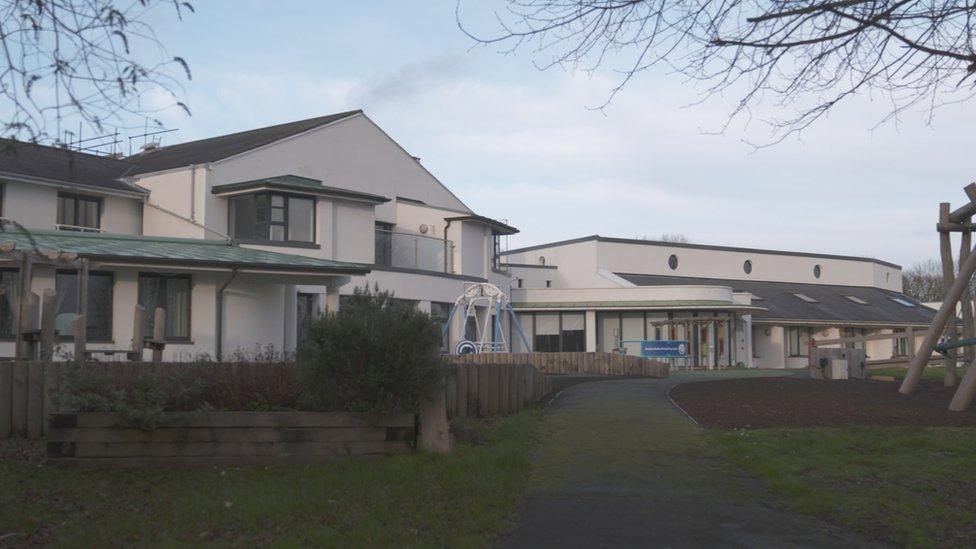
Mr Meacham said families needed more respite care but places like Tŷ Hafan "haven't got the resources"
James Meacham, from Pontllanfraith in Caerphilly county, gave up work when his eight-year-old son Thomas was diagnosed with adrenoleukodystrophy, external, a rare degenerative brain disorder, in 2018.
He died 18 months later.
During his family's "journey from hell" Mr Meacham said the respite care was "invaluable" for letting him switch out of 24-hour "carer mode" to enjoy precious moments with his son.
He said families like his needed more respite care, but Tŷ Hafan "just haven't got the resources".
"I'm sure there's a better way of balancing the numbers and giving more money to children's hospices. It just doesn't seem right."
Nerys Davies' five-year-old son Bedwyr was diagnosed with a rare genetic condition, Coffin-Siris Syndrome, external, two years ago.
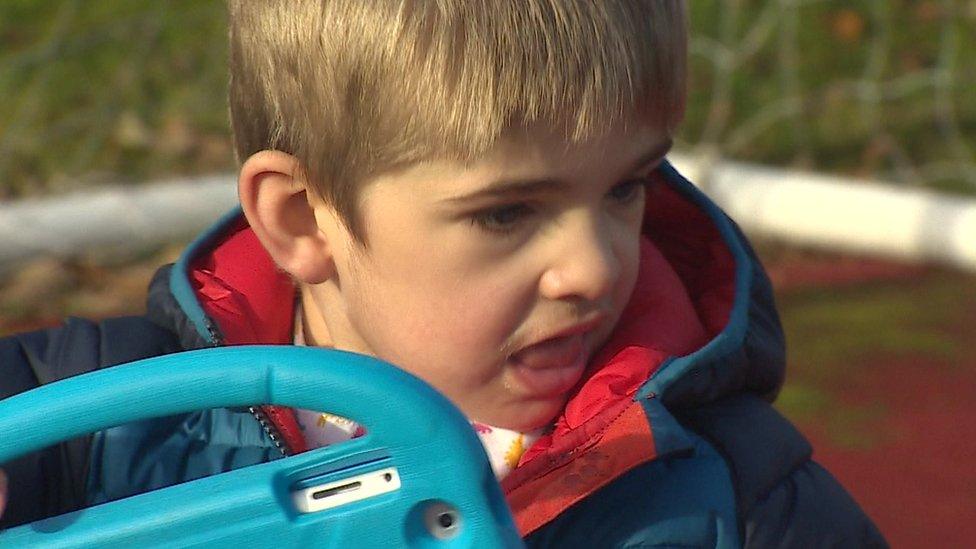
Bedwyr has learning disabilities and needs round-the-clock care
Bedwyr, from Llanrwst, Conwy county, has significant learning disabilities and needs round-the-clock care, meaning respite stays are important for the family's mental health.
"You feel it's the same day in, day out, and you can get into a rut where you don't want to go out and do things," Nerys said.
"So it does a world of good for all of us."
Both families have also accessed extra services such as bereavement support, counselling and physiotherapy through the hospices.
The hospices said they would like to extend their services, but rely almost entirely on public donations.
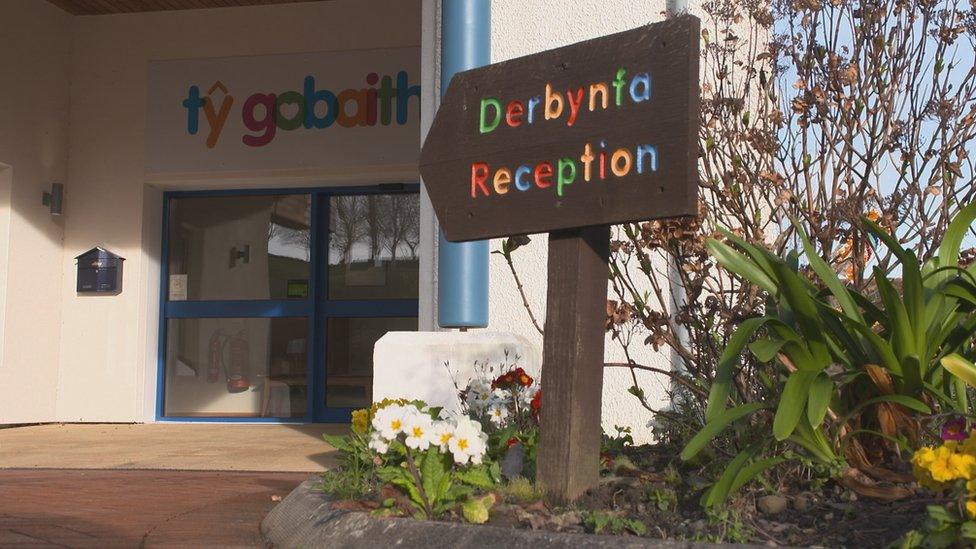
Tŷ Gobaith children’s hospice on the banks of the River Conwy has five beds and costs £2.5m a year to run
In Scotland, children's hospices get more than half of their funding from the Scottish government, external, those in Northern Ireland get 44%, while hospices in England get 21% of their income from the public purse.
Earlier this year funding pressures meant Tŷ Hafan had to prioritise crisis and end-of-life stays and cut respite visits.
It has been further hit by the pandemic, leaving it with a £2m shortfall this year on top of £250,000 needed to finish a major refurbishment.
"We rely on 95% on the generosity of the Welsh public, and the public are going through a really difficult time so we know we can't rely on that funding," said chief executive Maria Timon Samra.
She called on the Welsh Government to commit to a "guaranteed pipeline of funding" for the services the two hospices provide for sick children.
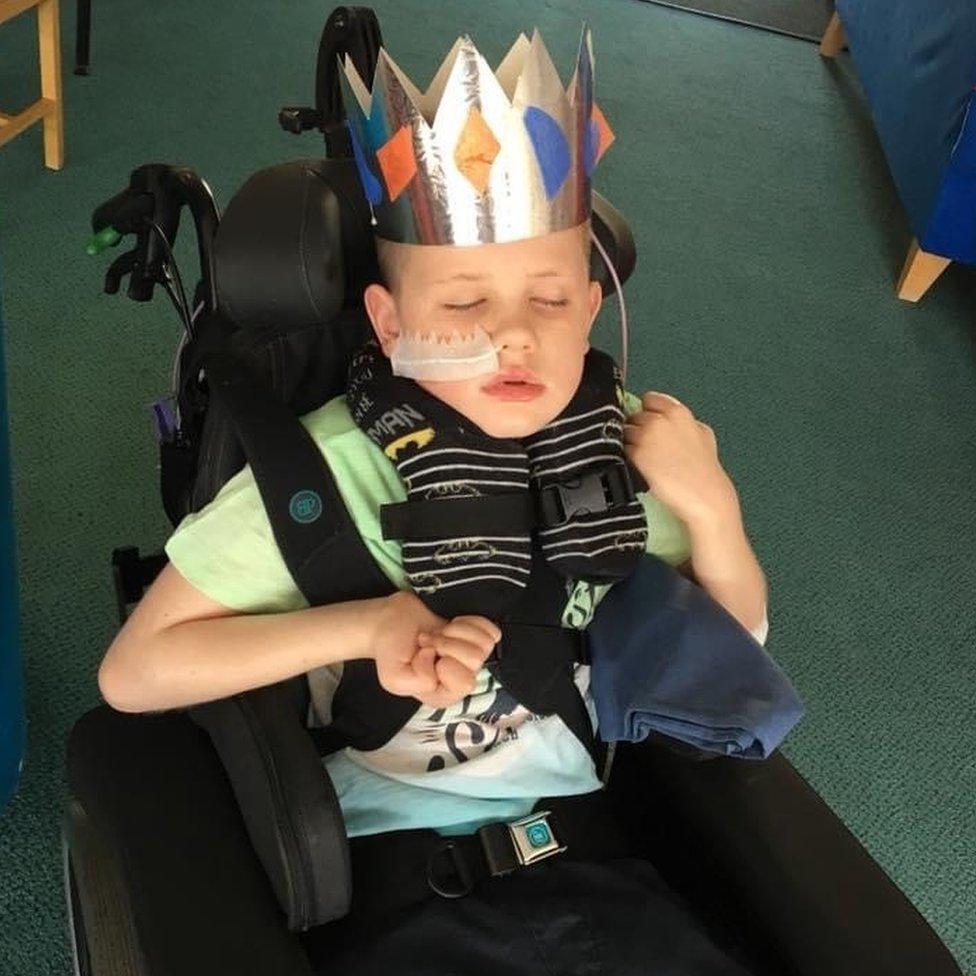
Thomas Meacham was cared for by staff at Tŷ Hafan hospice, which was "invaluable" for his parents
The Welsh Government said: "We have allocated up to £1.5m of the £6.3m emergency funding announced for hospices in April 2020 to support children's hospices.
"We have extended the availability of the funding from six to 12 months and continue to work with hospices to understand their future funding requirements."
- Published4 March 2020
